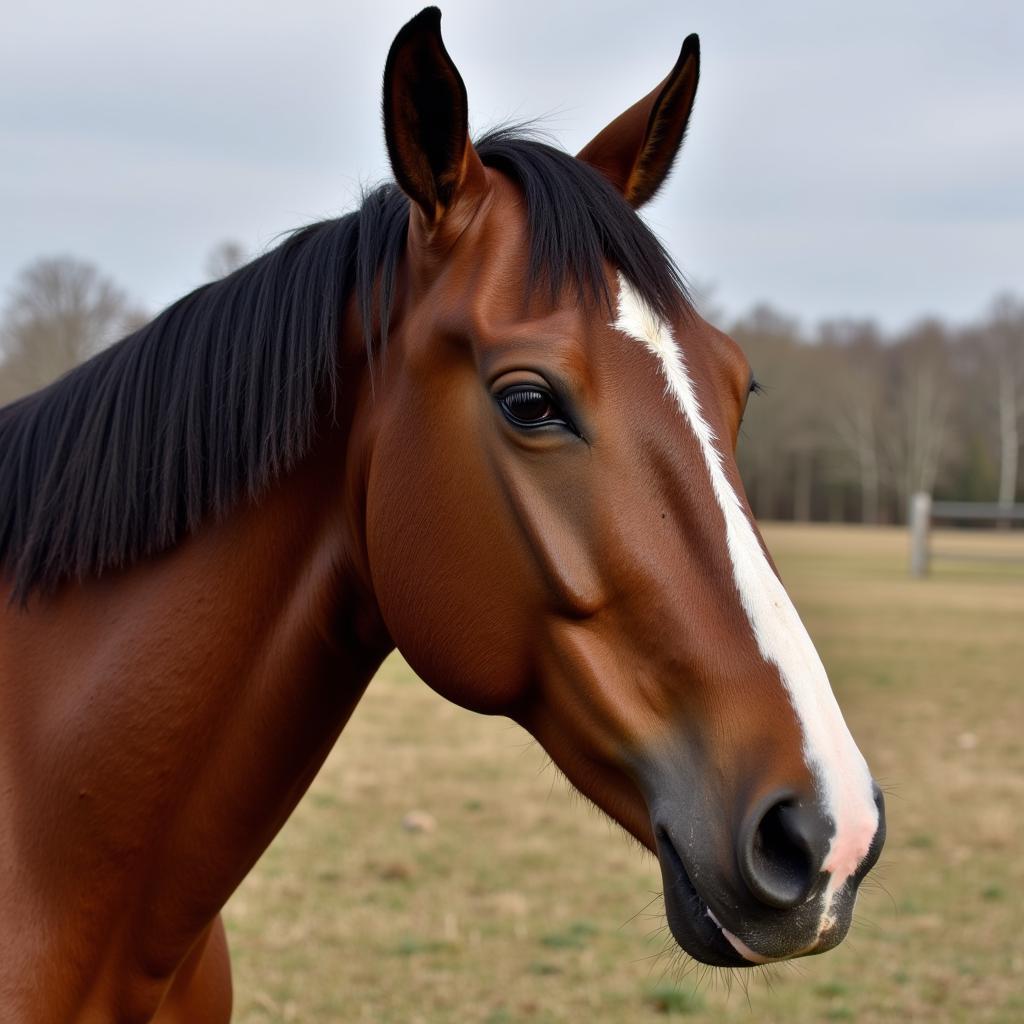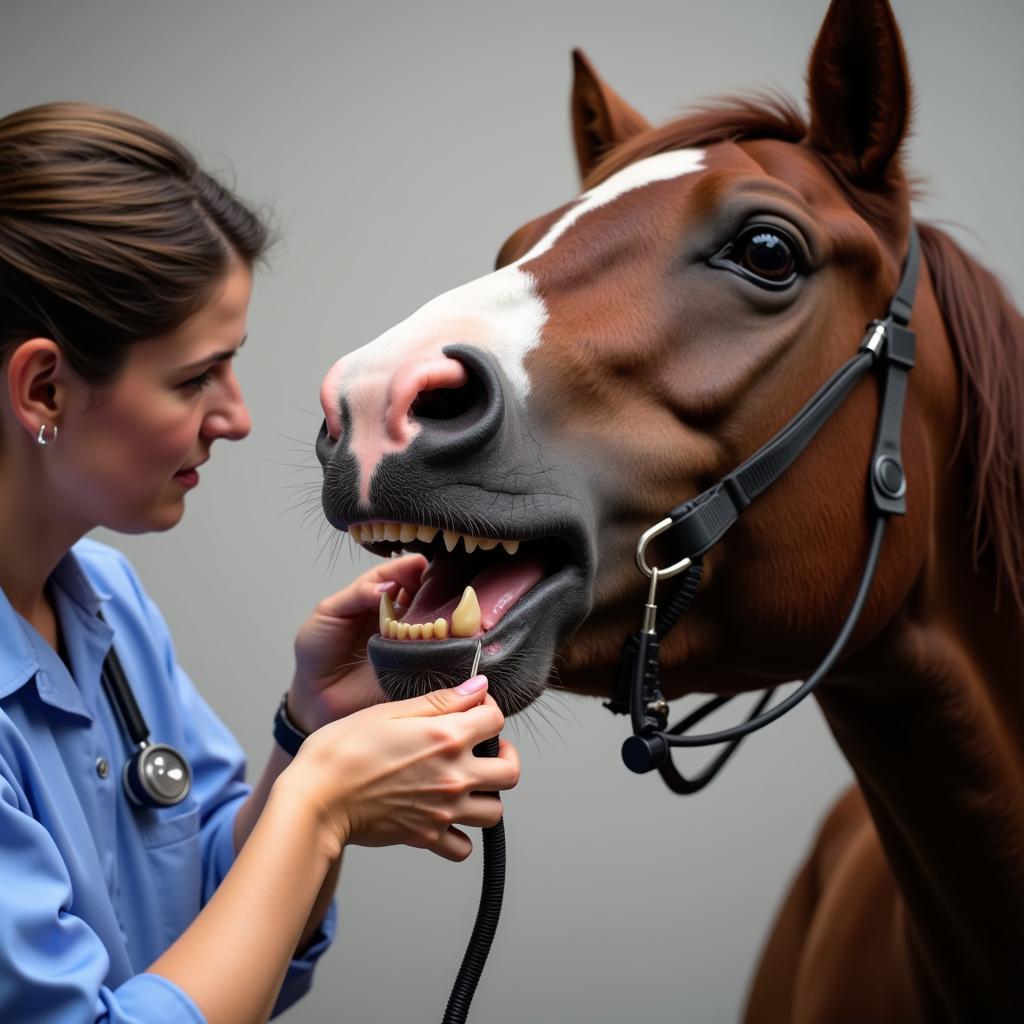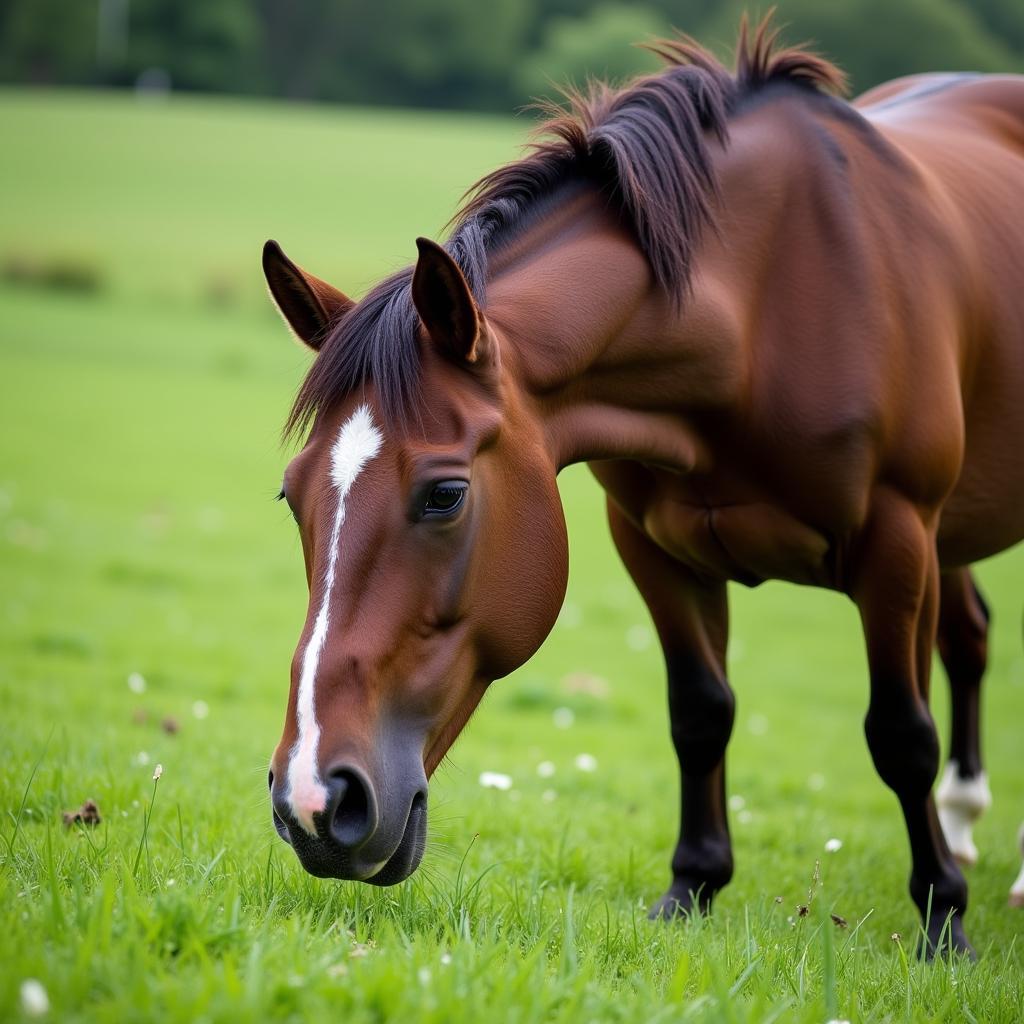Dish Face Horses are a fascinating subject, often sparking curiosity among horse enthusiasts. Their unique facial structure, characterized by a concave profile, sets them apart and raises questions about breed, health, and care. In this comprehensive guide, we’ll delve into the intricacies of the dish face in horses, exploring its causes, implications, and considerations for owners.
What Causes a Dish Face in Horses?
A dish face, sometimes referred to as a dished face, is identified by a noticeable inward curve along the bridge of the horse’s nose. This concavity can range from subtle to pronounced, and its causes are varied. Genetic predisposition plays a significant role, with certain breeds, like the Arabian, exhibiting a higher prevalence of this facial characteristic. Other factors can include developmental abnormalities, injuries, and even nutritional deficiencies during early growth stages. It’s important to differentiate a naturally occurring dish face from a similar appearance caused by a deviated septum, which can impact breathing.
After this introduction to the dish face characteristic, let’s delve into some of the breeds known for this trait. If you’re interested in Arabian horse art, you might find depictions of this unique facial structure. You can explore more about Arabian horse artists on our website. arabian horse artists
 Dish Faced Horse Profile View
Dish Faced Horse Profile View
Health Implications of a Dish Face
While a dish face is primarily a cosmetic feature, it can sometimes be associated with certain health concerns. One potential issue is dental misalignment, as the altered bone structure can affect the positioning of teeth, potentially leading to difficulties with chewing and grazing. In some cases, the nasal passages can be slightly narrowed, which might affect breathing, especially during strenuous activity. However, for the vast majority of dish face horses, these potential issues are minor and don’t significantly impact their overall health or performance.
For horse owners interested in kitchen accessories, our horse cutting board is a great addition. horse cutting board
 Veterinarian Examining Teeth of a Dish Faced Horse
Veterinarian Examining Teeth of a Dish Faced Horse
Caring for a Dish Face Horse
Caring for a dish face horse is largely similar to caring for any other horse, with a few specific considerations. Regular dental check-ups are crucial to ensure proper tooth alignment and address any potential issues early on. Monitoring the horse’s breathing during exercise is also recommended, especially in hot or humid conditions. Otherwise, providing a balanced diet, regular exercise, and appropriate hoof care are essential for maintaining the overall health and well-being of a dish face horse.
Are you fascinated by the unique beauty of Arabian horses? Discover more about the Breyer Arabian Horse model on our website. breyer arabian horse
Is a Dish Face a Defect?
Many people wonder if a dish face is considered a defect. In some breed standards, a slightly dished face is considered desirable, while an excessively dished face may be viewed less favorably. Ultimately, the perception of a dish face depends on individual preference and breed standards.
You might be interested in learning about horses with different facial structures, such as the long face horse. long face horse
 Dish Faced Horse Grazing Peacefully in Pasture
Dish Faced Horse Grazing Peacefully in Pasture
Conclusion
The dish face horse, with its distinctive concave profile, is a testament to the diversity within the equine world. While this unique facial characteristic can raise concerns about potential health implications, it’s important to remember that most dish face horses live long, healthy, and productive lives. By understanding the causes and implications of a dish face, owners can provide appropriate care and appreciate the unique beauty of these remarkable animals. Understanding the dish face characteristic requires acknowledging the potential health considerations while recognizing it as part of the horse’s unique identity.
FAQs about Dish Face Horses
- What breeds are most likely to have a dish face? Arabian horses are most commonly associated with a dish face, though it can occur in other breeds as well.
- Does a dish face affect a horse’s performance? Generally, a dish face does not significantly impact a horse’s athletic ability.
- Is a dish face painful for a horse? No, a dish face itself is not painful.
- How can I tell if my horse’s dish face is causing breathing problems? Look for signs like excessive flaring of the nostrils, noisy breathing, or difficulty breathing during exercise.
- Are there any special considerations for riding a dish face horse? No specific riding adjustments are typically needed.
- Can a dish face be corrected surgically? Surgery is not typically recommended or necessary for a dish face.
- Is a dish face inherited? Yes, a predisposition to a dish face can be passed down genetically.
Black Horse Extra Information:
Sometimes, you need a little something extra for your horse. Check out our page about Black Horse Extra supplements. black horse extra
Need help? Contact us 24/7! Phone: 0772127271, Email: [email protected] or visit us at QGM2+WX2, Vị Trung, Vị Thuỷ, Hậu Giang, Việt Nam.